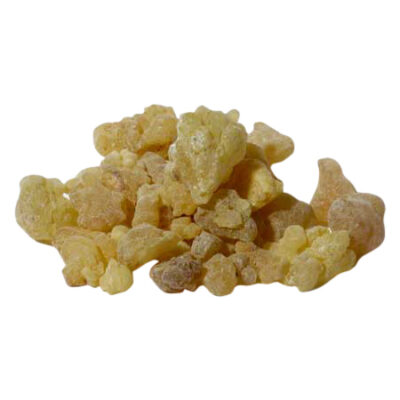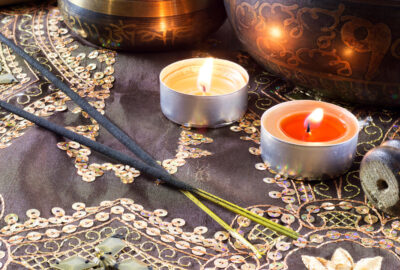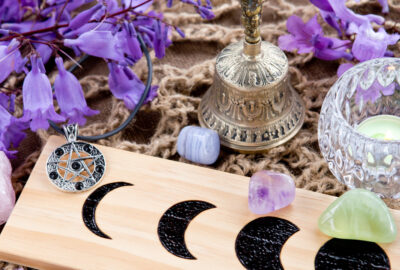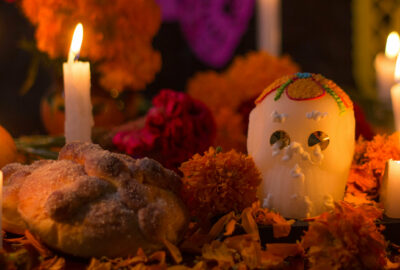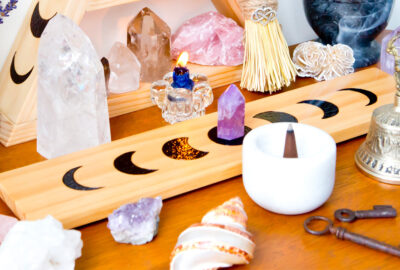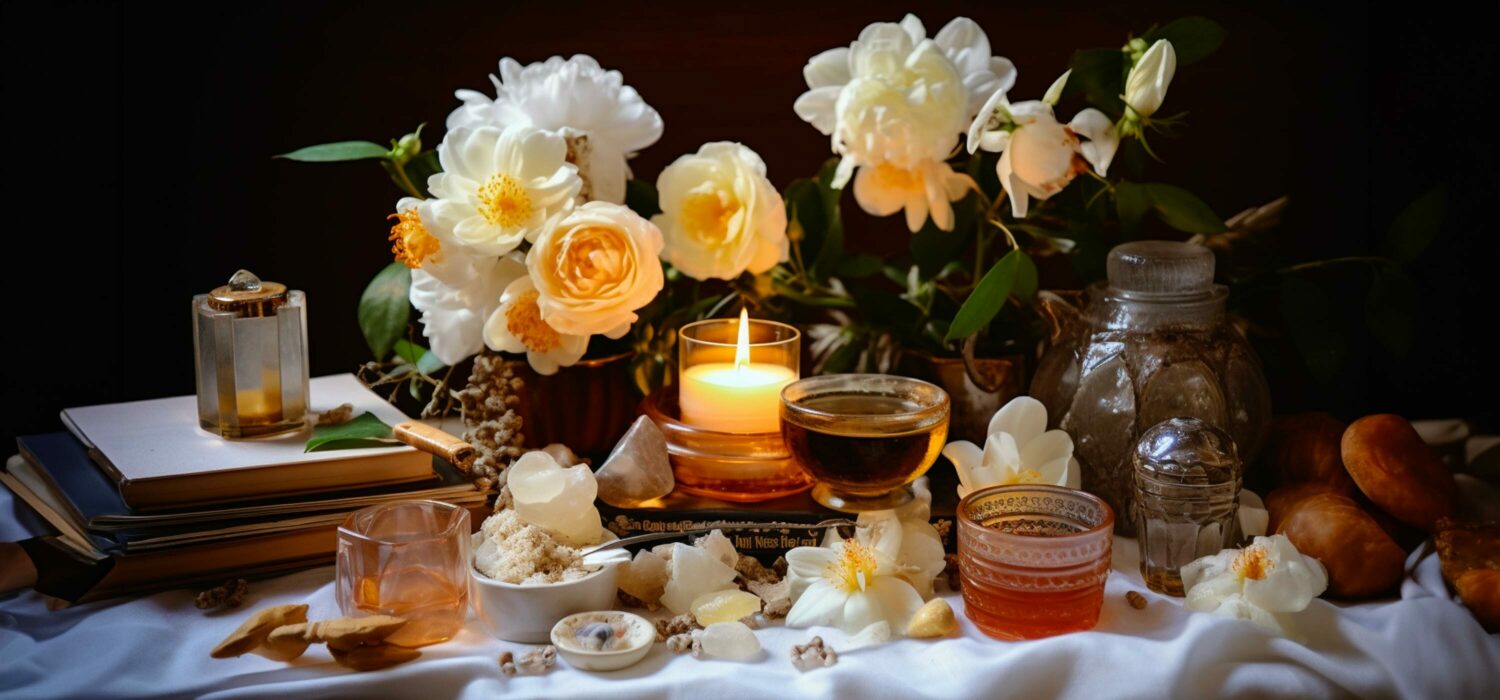
A Gratitude Altar For Thankfulness Rituals and Spells
It is the season for giving thanks, and there is no better way to do it than to create a ritual. The Divine -- whether you think of it as a god, many gods, the spirits in your life, or the energy of nature -- is responsible for all good things. Giving thanks is the best way to make sure that those things keep coming to you.
Exploring Gratitude in Various Spiritual Traditions
Gratitude practices across different cultures and spiritual traditions reveal a universal thread: thankfulness is a core human experience, deeply woven into our social and spiritual lives. From Native American ceremonies to African communal celebrations, Christian practices, and Pagan and Wiccan rituals, gratitude transcends cultural boundaries, highlighting our collective human heritage. Each tradition provides a unique lens on gratitude, emphasizing the importance of recognizing and valuing life's interconnectedness and blessings. Let's explore how these varied cultures and beliefs celebrate and honor gratitude.
Native American Cultures
In many Native American tribes, gratitude isn't just a feeling but a way of life. These tribes have deep respect for nature and all living things. They often have ceremonies and rituals where they give thanks to the earth, the sky, the water, and every living creature. For them, saying thank you is a way to recognize how everything in nature is connected. It's like a beautiful web of life where everything depends on everything else. When they give thanks, it's not just about being polite; it's about remembering this connection and respecting it.
African Traditions
In Africa, gratitude is something that brings people together. It's not just about saying thank you; it's about celebrating together. African cultures have a rich tradition of expressing gratitude through music, dance, and stories. These aren't just performances; they're ways for the community to come together, share joy, and remember their history and ancestors. When they dance or sing together, it's like they're saying thank you for their community, their ancestors, and the lessons they've learned. It's a powerful way to keep their culture and history alive and to strengthen the bonds between people.
Western Religious Practices: Christianity
In Christianity, saying thank you is a big part of the religion. Christians often say grace before meals, thanking God for the food and blessings. They also have special holidays like Thanksgiving, where the whole idea is to be grateful for what they have. In the Christian faith, especially in the New Testament, being grateful is seen as a really important part of being a good person. It's about recognizing all the good things God has done and keeping a positive, thankful attitude in life.
Pagan and Wiccan Traditions
In Pagan and Wiccan traditions, gratitude is also a key practice, deeply woven into their spiritual beliefs. These paths often focus on the Earth and nature, seeing the divine in the natural world. Pagans and Wiccans might have rituals and celebrations throughout the year, like the Wheel of the Year festivals, where they give thanks to nature, the elements, and the changing seasons. They believe that being thankful helps to keep them in balance with the natural world. It's about recognizing the gifts of the earth, the sun, the moon, and the stars, and understanding that humans are just one part of the big, beautiful tapestry of life.
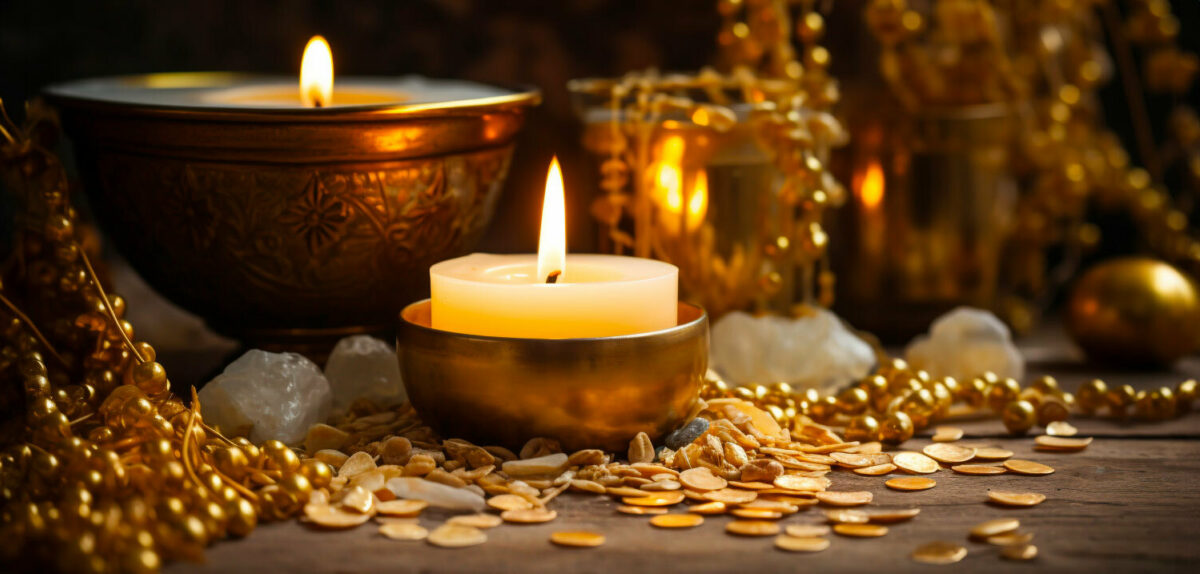
Keeping an altar devoted to being thankful is a great way to remember to appreciate what you have, and to give thanks regularly.
Starting a Gratitude Ritual
If you have a group of friends or loved ones you can perform this ritual with, it will be all the more powerful. If not, you can also perform it just as well by yourself. The Divine will hear your thanks no matter how many people you are with.
The first step to creating a ritual for giving thanks is to put together a list of all of the things you have to be thankful for. Even mundane things, like good health, a job, a roof over your head, clean water, or a car that runs are all worth being thankful for.
Although candle rituals like these can be performed on any day of the week, there are certain days that can add power to your spells. For best results, perform your gratitude rituals on a Sunday. It is the day associated with the sun, success, vitality, creativity, and optimism, and is great for rituals that lay the groundwork for your future happiness. If you are in need of a little more to be thankful for, perform these rituals on a Thursday -- it is associated with Jupiter, and good for bringing you more of whatever you already have.
Setting a Gratitude Altar
Keeping an altar devoted to being thankful is a great way to remember to appreciate what you have, give thanks regularly, and keep all of your roads to success unblocked. This altar does not have to be large or fancy, just a pleasant place for you to return to to sit, give thanks, and honor those who have made your success possible.
Anoint your altar with Altar Oil to cleanse and prepare it. Set it with gold candles, a holder for incense, and a clear quartz point or tower, arranged behind a pretty plate or bowl to hold offerings. (If you can, keep a vase full of camellia flowers on your altar -- they are associated with gratitude.)
To use the altar, write down all of the things you are thankful for. Light the candles and some frankincense incense, place the list under the crystal, and place an offering in the bowl to show your appreciation. Food, honey, or flowers are all good offerings. Sit, meditate, and be happy for all of the good things in your life.
When you are through, say "thank you," snuff the candles, and go about your day with happiness in your heart. Return to your altar as often as you need to to keep the offerings and/or flowers fresh.
Thankful Candle Spell
This ritual is simple. All you will require is a gold candle, two white candles, frankincense incense, and frankincense oil. Dress the candles with the oil, and set them on a table in a safe, peaceful spot. Light the incense, light the candles, and quietly pray or meditate on all you are grateful for. You can say some simple words, like, "I am here to give thanks for all that I have," or read your list of things to be thankful for out loud. When you are done, snuff the candles.
A Short Thankfulness Ritual
If your life keeps you too busy for a formal ritual, you can still express your feelings of thankfulness. Find a fireproof vessel, and take it outside. Then, write a list of things you are thankful for on a piece of paper in non-toxic ink. Anoint the list with jasmine or vetiver oil, and light it on fire. Place it in the vessel, say a few short words of thanks, and let it burn. The smoke will carry your thanks to the Divine.
Being Thankful Every Day
A ritual is great for expressing your thanks, but it should not stop there. Do small things to keep a grateful feeling in your heart. Keep a journal of all of the things you have to be thankful for. Whenever you can, pay your good fortune forward -- donate money, food, clothes, or even just your time whenever you have more than enough. Instead of saying "I have to," say "I get to." You get to cook dinner because not everyone has food. You get to go to work because not everyone can earn money.
Showing your appreciation for everything you have is important. It helps make sure that you keep it, and tells the universe that you are worthy of more. Perform these rituals to give thanks, but make sure to show your thankfulness in small ways every day.






